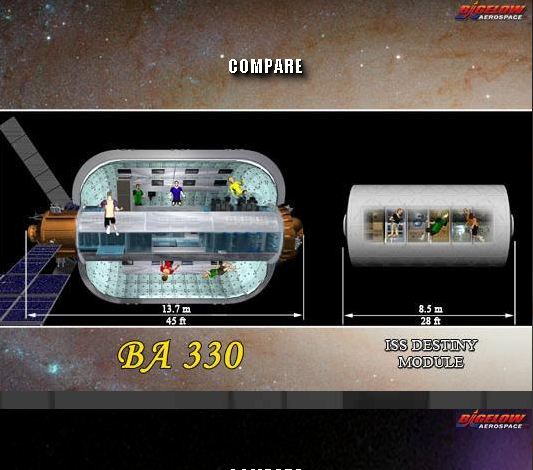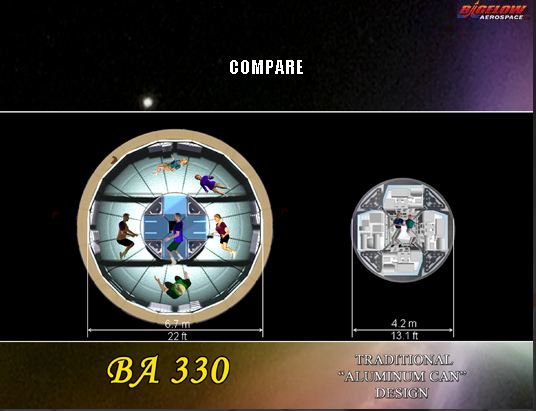

| Visitors Now: | |
| Total Visits: | |
| Total Stories: |

| Story Views | |
| Now: | |
| Last Hour: | |
| Last 24 Hours: | |
| Total: | |
You Pay Millions, You Can go to Space
Bigelow Aerospace has announced pricing for visits to its space station.
Bigelow has two prototypes in orbit right now and believes their technology is ready for a permanent station to be deployed, but are waiting for transportation to and from the future station.

(Bigelow)
Their station will differ from the International Space Station primarily through its accessibility to everyone, instead of just mostly to the United States and Russia.
“Nations such as Japan, Canada, Brazil, the United Kingdom, the Netherlands, and Sweden could secure the future of their human spaceflight programs and dramatically increase the size of their astronaut corp,” Bigelow explains on its website. “Smaller countries with no human spaceflight experience such as Singapore or the United Arab Emirates could take their first bold steps into space in a rapid and affordable fashion. The benefits to participating nations are many and varied.”


Illustrations of how Bigelow’s spacecraft is superior to the ISS. (Bigelow)
To fly a single astronaut up to the station for as long as 60 days or as few as 10 days will cost $26.25 million if the transportation is through SpaceX’s Falcon 9 rocket and Dragon capsule.
If the transportation is through Boeing, then it will cost $36.75 million.
More importantly, though, is if anyone wants to stay up there they can lease over 110 cubic meters of volume for a two month period for $25 million.
“This unprecedented amount of volume will allow clients to utilize a significant portion of a space station for their own uninterrupted work and use to fly experiments or other payload,” according to Bigelow. “For example, if a client chose to fill a single lease block with 50 or more experiments, the flight cost of sending an individual experiment to the Alpha Station would only be $500,000 or less for to months.”
Space is becoming a new frontier lately, after spacecrafts started being developed by private companies following NASA’s scale back. This includes companies eyeing mining passing asteroids for metals and minerals.
In other recent space news, Citizens in Space announced two new astronaut candidates, both from Texas.

The program, part of the United States Rocket academy, has purchased 10 flights on the new XCOR Lynx spaceplane, expected to start service in 2014.
The two new additions are Michael Johnson and Edward Wright.
Johnson is one of the ofunders and current executive director of the North American Aerotech Academy, a nonprofit that provides aviation based STEM education to schools in the Dallas-Forth worth area. He’s also a commercial pilot. Wright is the chairman of the United States Rocket Academy, and project manager for Citizens in Space.
Two other astronauts were previously announced; six more will be added next year to the program.


